Choosing the right college is vital for students and their families, considering factors like academic quality, campus atmosphere, and location, but financial considerations are equally important as the cost of higher education continues to rise. To aid prospective students in making informed decisions, we’ve compiled a list of the top 10 colleges that offer the best and worst value for your money. We assessed affordability, return on investment (ROI), and student outcomes to create this list. While earning a college degree generally leads to higher earnings, not all colleges provide the same return on investment.
Given the steep rise in college costs since the ’80s, it’s crucial to select a school that offers a promising future. Our list provides essential information such as graduation rates, earning potential, tuition costs, and net prices, simplifying the decision-making process for students and their families.
Best Colleges for Your Money
Massachusetts Institute of Technology

Net Price: $20,465
Tuition: $53,790
Students Receiving Financial Aid: 74%
Acceptance Rate: 7%
Graduation Rate: 95%
Employed Two Years After Graduation: 94%
Median Earnings Six Years After Graduation: $104,700

The Massachusetts Institute of Technology, commonly known as MIT, stands as a beacon of innovation and academic excellence in the field of science, technology, engineering, and mathematics (STEM). Located in Cambridge, Massachusetts, MIT has earned global recognition for its groundbreaking research, cutting-edge facilities, and visionary approach to education.
Established in 1861, MIT has evolved into a prestigious institution renowned for its rigorous academics, world-class faculty, and vibrant campus culture. With a commitment to pushing the boundaries of knowledge and solving complex challenges facing society, MIT continues to attract some of the brightest minds from around the world, making it a hub of intellectual curiosity and innovation.
Stanford University
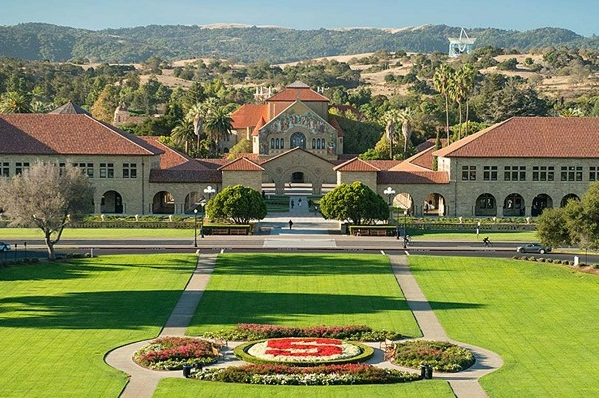
Net Price: $16,779
Tuition: $53,529
Students Receiving Financial Aid: 70%
Acceptance Rate: 4%
Graduation Rate: 94%
Employed Two Years After Graduation: 94%
Median Earnings Six Years After Graduation: $94,000

Stanford University, nestled in the heart of California’s Silicon Valley, stands as a beacon of academic excellence and innovation. Founded in 1885, Stanford has evolved into one of the world’s leading research universities, renowned for its cutting-edge discoveries and pioneering contributions to various fields. Its picturesque campus, characterized by palm-lined streets and Spanish-style architecture, serves as a vibrant hub of intellectual discourse and cultural diversity.
Home to a diverse community of scholars, students, and researchers from around the globe, Stanford fosters an environment of collaboration, creativity, and entrepreneurship. With a faculty comprised of Nobel laureates, Pulitzer Prize winners, and MacArthur Fellows, Stanford offers unparalleled opportunities for academic and personal growth. Through its commitment to interdisciplinary research and interdisciplinary collaboration, Stanford continues to push the boundaries of knowledge and address some of the most pressing challenges facing society today.
Lehigh University

Net Price: $26,631
Tuition: $56,980
Students Receiving Financial Aid: 69%
Acceptance Rate: 32%
Graduation Rate: 90%
Employed Two Years After Graduation: 95%
Median Earnings Six Years After Graduation: $81,900

Lehigh University, nestled in Bethlehem, Pennsylvania, may not have the same widespread recognition as some of its peers, but it offers exceptional value to its students. With a median annual salary of $66,200 two years after graduation, climbing to $81,900 six years later, Lehigh ensures strong returns on investment. Its intimate learning environment, supported by a low 9:1 student-to-faculty ratio, fosters meaningful interactions between students and professors, with 92% of students expressing satisfaction with their dedication.
Beyond academics, Lehigh’s spirited rivalry with Lafayette College adds excitement to campus life, with unique traditions like bed drag racing during Spirit Week. This blend of academic excellence and vibrant campus culture makes Lehigh University a standout institution.
Rice University

Net Price: $20,335
Tuition: $52,070
Students Receiving Financial Aid: 69%
Acceptance Rate: 9%
Graduation Rate: 93%
Employed Two Years After Graduation: 92%
Median Earnings Six Years After Graduation: $65,400
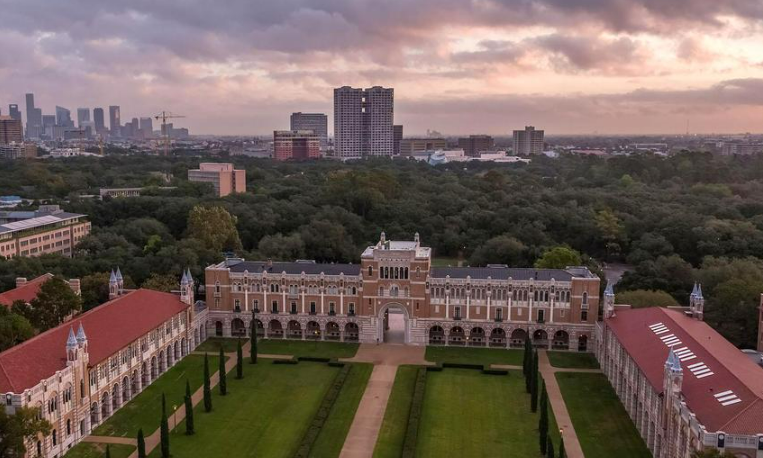
Located in the vibrant city of Houston, Texas, Rice University stands as a beacon of academic excellence and innovation. Established in 1912, Rice has cultivated a rich tradition of scholarly achievement and community engagement. Renowned for its rigorous academics, cutting-edge research, and unique residential college system, Rice offers students a distinctive and enriching educational experience.
While Rice University’s post-graduation earning potential may not match that of prestigious institutions like MIT and Stanford, its median annual salary of $65,400 six years after graduation is nearly double the national average of $33,028. This speaks volumes about the value and opportunities the university offers its graduates. Additionally, Rice’s unique housing system sets it apart, resembling the sorting of students into Hogwarts houses in the Harry Potter series. Every Rice student, whether opting to reside on campus or not, is assigned to a residential college, each with its own distinct traditions, competitions, and emblematic crest.
Drake University
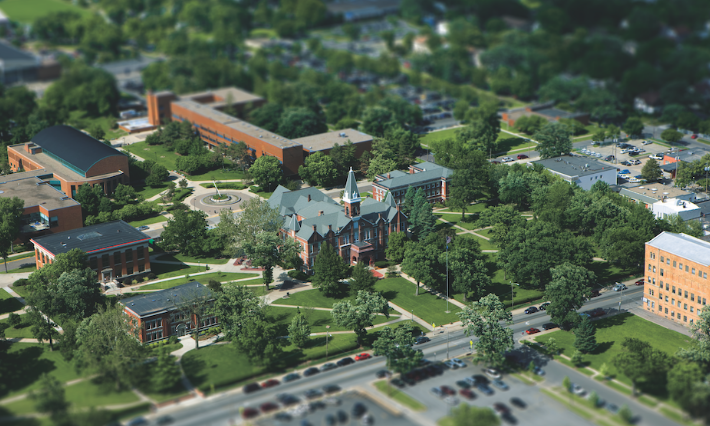
Net Price: $30,265
Tuition: $45,734
Students Receiving Financial Aid: 100%
Acceptance Rate: 68%
Graduation Rate: 81%
Employed Two Years After Graduation: 95%
Median Earnings Six Years After Graduation: $58,300
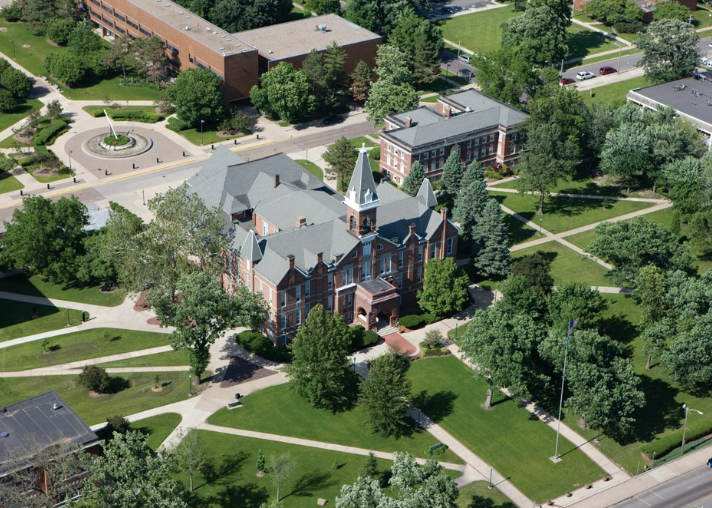
Drake University, located in Des Moines, Iowa, offers a refreshing approach to the college application process by waiving its application fee, making higher education more accessible to students from diverse backgrounds. This commitment to affordability extends beyond admission, as Drake continues to provide value post-graduation with an impressive alumni network. According to a Niche poll, 87% of surveyed students acknowledge Drake’s robust alumni connections, further enhancing the university’s reputation for fostering lifelong relationships and professional opportunities.
Moreover, Drake distinguishes itself with its innovative J-Term program, offering students a unique opportunity to explore their interests and expand their horizons during the three-week period between fall and spring semesters. Whether students choose to pursue a passion project, develop new skills, or embark on an immersive study abroad experience, J-Term empowers them to engage deeply with their education in diverse and meaningful ways.
Worst Colleges for Your Money
University of Maine at Augusta

Net Price: $10,046
Tuition: $17,340 (out-of-state), $7,170 (in-state)
Students Receiving Financial Aid: 90%
Acceptance Rate: 100%
Graduation Rate: 13%
Employed Two Years After Graduation: 80%
Median Earnings Six Years After Graduation: $27,700

The University of Maine at Augusta (UMA) serves as a cornerstone of higher education in Maine. Despite its seemingly attractive low tuition costs, the University of Maine at Augusta (UMA) presents a contrasting narrative when considering graduation rates and post-graduation earning potential. Unfortunately, both metrics fall significantly below the national average, with UMA reporting a graduation rate of 13% compared to the national average of 49%, and a median alumni salary of $27,700 compared to the national average of $33,028.
Additionally, UMA faces challenges with an above-average loan default rate of 14%. However, UMA strives to cater to the needs of adult learners who often balance school with work and family responsibilities, evident in the fact that 51% of its student body is over the age of 25. This demographic composition may particularly resonate with adult students seeking a supportive environment that understands their unique circumstances.
Berklee College of Music

Net Price: $43,744
Tuition: $45,660
Students Receiving Financial Aid: 63%
Acceptance Rate: 51%
Graduation Rate: 65%
Employed Two Years After Graduation: 86%
Median Earnings Six Years After Graduation: $30,300

Berklee College of Music stands as a prestigious institution at the forefront of music and performing arts education. Renowned worldwide for its excellence, Berklee offers a dynamic and immersive learning environment for aspiring musicians and performers. However, the prestige comes with a hefty price tag, with a net price of $43,744, well above the national average.
Despite the financial burden, Berklee’s unparalleled reputation attracts students from around the globe who are passionate about pursuing their musical dreams. With a remarkable track record of producing Grammy Award-winning alumni and a commitment to artistic innovation, Berklee College of Music remains a beacon of inspiration and opportunity for aspiring musicians seeking to carve out their place in the world of music.
CUNY Medgar Evers College
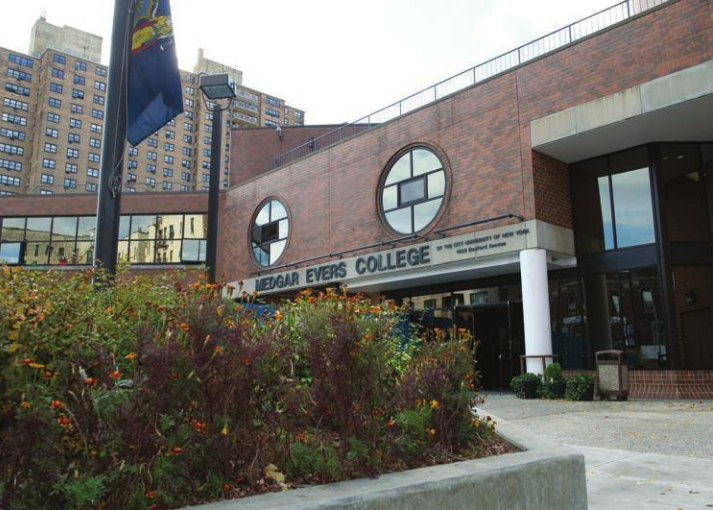
Net Price: $5,949
Tuition: $15,302 (out-of-state), $7,352 (in-state)
Students Receiving Financial Aid: 89%
Acceptance Rate: 100%
Graduation Rate: 14%
Employed Two Years After Graduation: 87%
Median Earnings Six Years After Graduation: $35,900
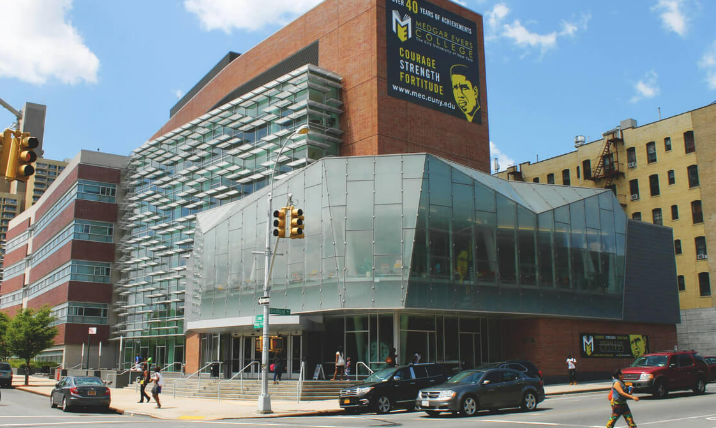
CUNY Medgar Evers College offers an appealingly low-priced tuition, significantly undercutting the national average by $9,574 per year. However, the college grapples with a concerning graduation rate of just 14%, raising questions about its academic support and student success initiatives. Despite this challenge, the college’s location in the vibrant borough of Brooklyn presents an enticing environment for students. Surrounded by cultural landmarks such as the Brooklyn Museum, Prospect Park, and the Brooklyn Botanic Garden, as well as an array of dining options, students can enjoy a rich and diverse urban experience while pursuing their education.
With its blend of affordability and cultural richness, CUNY Medgar Evers College offers students the opportunity to immerse themselves in both academic and extracurricular pursuits within the dynamic backdrop of Brooklyn.
Auburn University at Montgomery

Net Price: $14,559
Tuition: $18,292 (out-of-state), $8,620 (in-state)
Students Receiving Financial Aid: 98%
Acceptance Rate: 90%
Graduation Rate: 34%
Employed Two Years After Graduation: 91%
Median Earnings Six Years After Graduation: $33,300

Auburn University at Montgomery (AUM) offers a net price slightly below the national average at $15,523, making it an attractive option for students seeking affordable higher education. However, with only a 34% graduation rate, which falls below the national average, concerns arise regarding the college’s student support and academic success initiatives.
Its proximity to Maxwell-Gunter Air Force Base and dedicated veteran liaison underscores its commitment to supporting military-affiliated students. With its blend of affordability and military-friendly initiatives, Auburn University at Montgomery provides a unique and supportive environment for students pursuing their educational goals.
Dixie State University

Net Price: $12,801
Tuition: $15,792 (out-of-state), $5,496 (in-state)
Students Receiving Financial Aid: 92%
Acceptance Rate: 100%
Graduation Rate: 36%
Employed Two Years After Graduation: 85%
Median Earnings Six Years After Graduation: $35,400

Dixie State University presents itself as an initially reasonably priced option based on its net tuition costs. However, upon closer examination, concerns arise regarding its below-average graduation rate of 36%, which falls short of national averages. This raises issues about student success and support programs within the university.
Despite this drawback, Dixie State University strives to enhance campus life through a variety of engaging events throughout the academic year. Students eagerly anticipate annual highlights such as the Foam Dance, Chaos Dance, and Inferno Dance, which contribute to a vibrant and lively campus atmosphere.
